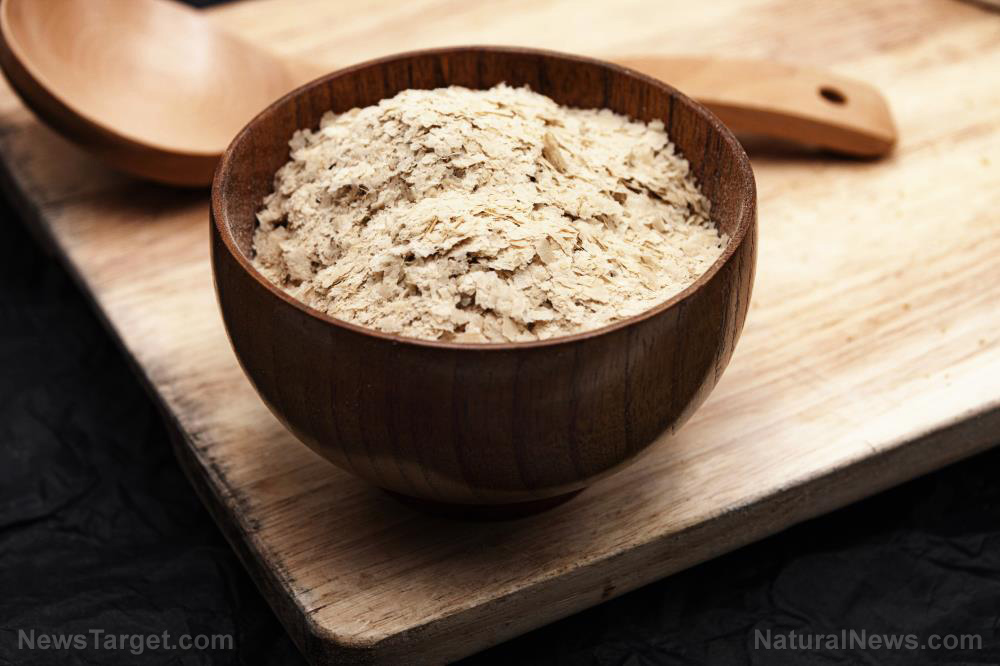Short-chain fatty acids: Gut health and SCFAs
08/27/2020 / By Virgilio Marin

Short-chain fatty acids, or SCFAs, are the main source of energy for the cells lining the colon. They play an important role in colon health and are also involved in the metabolism of important nutrients like carbs and fat.
When boosting gut health, considering increasing SCFAs as it can help treat diseases of the gut such as inflammatory bowel diseases, or IBD. Moreover, these fatty acids have antagonistic effects on cancer and are involved in the body’s immune response to pathogens.
How short-chain fatty acids are made and where to get them
Short-chain fatty acids are produced by the good gut bacteria by fermenting fiber in the colon. When prebiotic fiber reaches the body, the gut bacteria feed on it and this results in the postbiotic SCFA. There are three main types of SCFA in the body: butyrate, acetate and propionate. Propionate is primarily involved in glucose production in the liver while acetate and butyrate are incorporated into other fatty acids and cholesterol.
The number of microorganisms present in the body affects the amount of SCFAs in the colon. The food source and the time it takes for food to travel through the digestive system also determine SCFA number. It is therefore important to eat the right kinds of food that will nourish good gut bacteria.
Best of all is fiber. Research showed that eating more fiber boosts butyrate production while decreasing your fiber intake reduces production. (Related: Overall health starts in your gut, and gut health starts with probiotics and fiber, according to Chinese study.)
Foods such as artichokes, garlic, leeks, onions, wheat, rye and asparagus are rich in the fiber inulin. Meanwhile, apples, apricots, carrots and oranges are good sources of the fiber pectin.
The benefits of SCFAs
Short-chain fatty acids are a host to a variety of health benefits.
Your gut health, for one, benefits greatly from SCFAs. These fatty acids have anti-inflammatory effects on the gut that can help treat IBD, which is characterized by chronic inflammation of the gastrointestinal tract. Human studies showed that SCFAs, especially butyrate, can improve symptoms of ulcerative colitis and Crohn’s disease, two types of IBD.
Furthermore, SCFAs can heal the colon wall and correct leaky gut. While it’s not medically recognized as a diagnosable condition, leaky gut syndrome can contribute to a range of diseases including IBD. It happens when the openings in the intestinal wall get wider, allowing harmful substances and bad bacteria to enter the bloodstream.
Butyrate, on the other hand, can help tighten these leaky openings by increasing the expression of certain proteins. It can also decrease the release of bacterial endotoxin into the bloodstream.
Aside from gut health, however, SCFAs also play a role in the immune system and are involved in anti-tumor processes.
Studies found that SCFAs help inhibit three of the most powerful inflammatory signals in the body. They also play a role in T cell production and function. T cells are a type of white blood cells that act like soldiers against an invading pathogen; they are important for the immune system and adaptive immunity, the system that tailors the body’s immune response to particular pathogens.
SCFAs also help fend off the growth of tumor cells. This is due to the fatty acids’ ability to regulate gene expression through enzymes called histone deacetylases, or HDACs. Cancer develops due to abnormal cell proliferation. SCFAs, on the other hand, can inhibit this through its activity on HDACs. Furthermore, they can also destroy cancer cells by inducing programmed cell death or apoptosis.
Given the roles of SCFAs in the body, maintaining an adequate number of these fatty acids is important. Get your fill of short-chain fatty acids by eating more fiber-rich foods.
Know more about foods rich in fiber at FoodCures.news.
Sources include:
Tagged Under: anticancer, colon, crohns disease, disease treatments, fatty acids, fiber, fiber-rich foods, food cures, food is medicine, good bacteria, gut health, immune system, leaky gut, ulcerative colitis
RECENT NEWS & ARTICLES
COPYRIGHT © 2017 HEALING NEWS



















